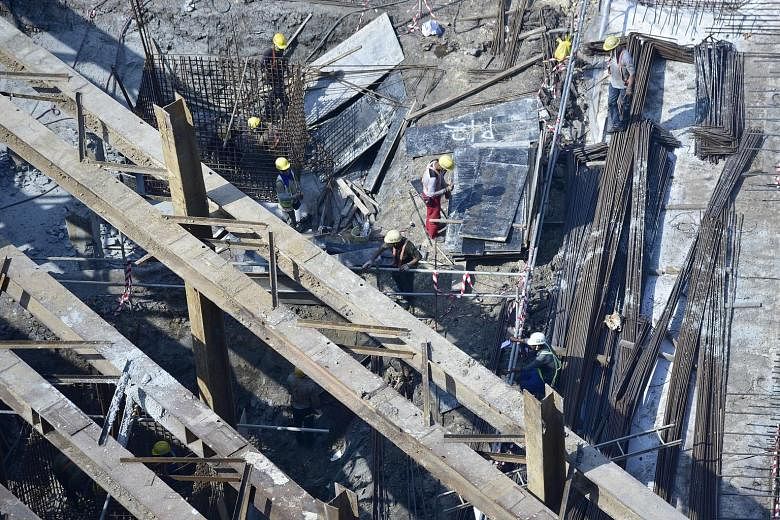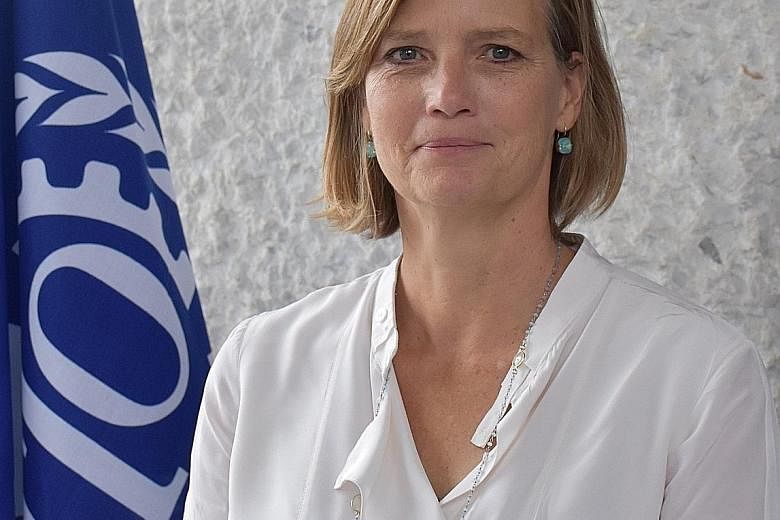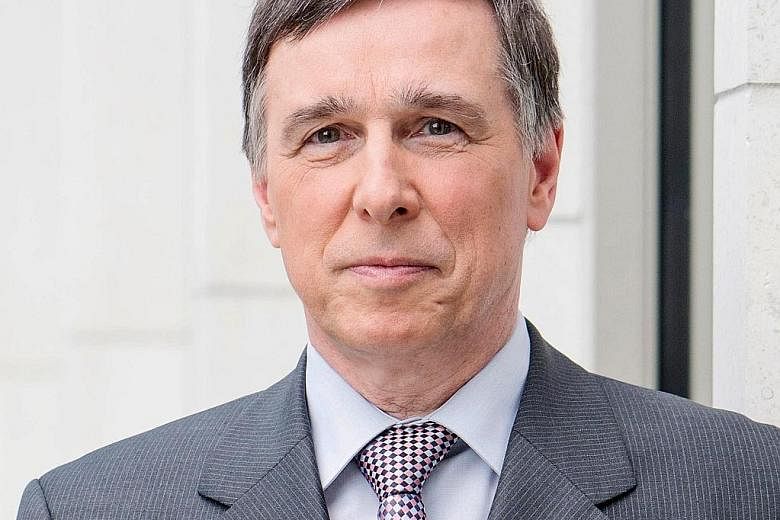Occupational safety and health should not be put on the back burner when it comes to discussing hot-button topics, because they are basic human rights.
Dr Joachim Breuer, president of the International Social Security Association (ISSA), stresses: "The quality of occupational health and safety has tremendous impact on people's lives. Prevention contributes to society as occupational safety and health are basic human rights."
He was speaking to The Straits Times ahead of the 21st World Congress on Safety and Health at Work in Marina Bay Sands next week.
It is the first time that the meeting - started by the International Labour Organisation (ILO) and the ISSA in 1955 - is being hosted in South-east Asia.
Ms Nancy Leppink, chief of the Labour Administration, Labour Inspection and Occupational Safety and Health Branch of the ILO, says the international forum brings together the occupational safety and health community, including governments and workers.
The aim is to reinforce and build networks and alliances, while laying the groundwork for cooperation among all involved, as well as to develop and exchange knowledge and strategies that can be implemented locally.
She says: "The fostering and promotion of a preventative safety and health culture is a fundamental basis for improving occupational safety and health performance globally. This is very much a leadership issue... many problems persist.
-
AIMING FOR ZERO HARM
-
Vision Zero
What: A new global strategy for health, safety and well-being
*Cultivating the mindset that all injuries and ill health at work are preventable and zero harm is possible, and seeking solutions
*The International Social Security Association will launch its global campaign at the congress
*Singapore launched the Vision Zero movement here in 2015
*A key point of the Vision Zero strategy: All work has health and safety boundaries that should not be crossed
-
21st World Congress on Safety and Health at Work
Where: Marina Bay Sands
When: Sept 3 to 6
*About 3,000 delegates from more than 100 countries are expected to attend
*Held every three years
*World's largest event for occupational safety and health experts over the years
"There is general agreement that further sustained and coordinated action is needed at the international and national levels. Workplace safety and health has suffered from sporadic political support, and inadequate public and private resources."
As Singapore Manpower Minister Lim Swee Say said at the National Workplace Safety and Health Conference 2016: "We need to build a collective workplace safety and health ownership... (that) means everyone has to embrace the same mindset of not just reducing workplace fatalities, but preventing all work-related injuries and ill health too.
"A minor accident today, if not prevented, can lead to a major accident, a dangerous occurrence or even a fatal accident tomorrow."
Dr Breuer explains the knock-on effect that an occupational accident or disease has on society.
Besides causing physical pain and human suffering, he says, "it also affects businesses because fatal accidents mean a disruption of the whole company and a loss of workforce".
"Last but not least, the compensation of accidents and diseases at work increases the costs of the social security systems for society as a whole," he says. "From an economic standpoint, it makes sense to invest in prevention and return to work... (and) allow people to go back to work instead of depending on financial compensation."
Ms Leppink says the ILO estimates occupational accidents and work-related diseases cause over some 2.7 million work-related fatalities a year.
"The economic impact of the failure to adequately invest in occupational safety and health is currently estimated to be 3.7 per cent of the global GDP per year, not to mention the human suffering caused," she adds.
Ms Leppink notes that Asean is projected to become the fourth-largest economy by 2050, and has about 630 million people, with more than half under the age of 30.
"This promises a powerful surge in working-age population that will drive high rates of economic growth for years to come.
"The leadership shown by Singapore and other countries on investing in youth employment and preventative occupational safety and health culture will only reinforce the sustainability of this trend."
She says the congress will feature extensive activities around "young worker vulnerability" this year, and some 150 young workers and employers from around the world "have been invited to share their ideas and enthusiasm for reducing workplace harm to young people, who suffer the highest incidence rate of workplace injuries".
Dr Breuer adds that the good news is that all occupational accidents and diseases are preventable.
"Our colleagues from Singapore can contribute their expertise to Vision Zero - a new global strategy for health, safety and well-being. The World Congress will be the perfect occasion to launch this global campaign developed by ISSA."
This feature is brought to you by the Ministry of Manpower.



